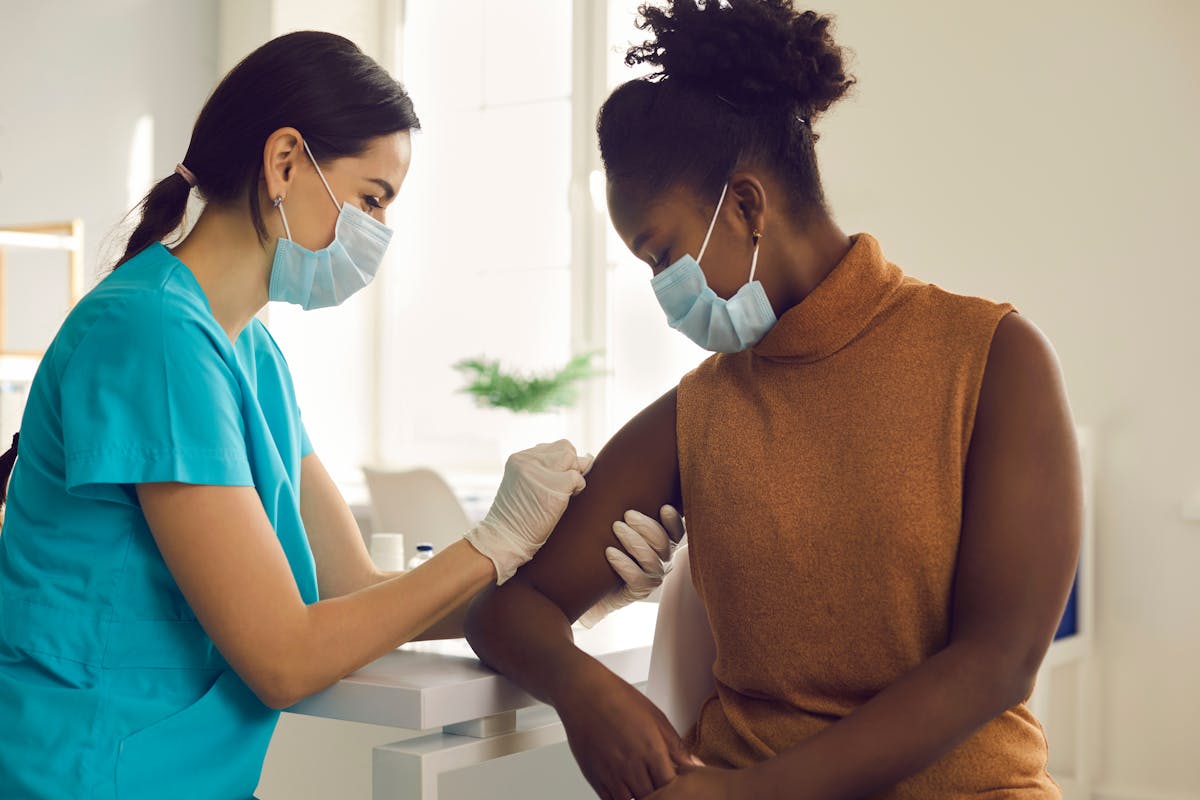What Older Adults Should Know About the Pneumonia Vaccine

As summer winds down and we head into fall, the influenza virus typically makes its return. But it’s not the only illness that increases as the weather turns colder. Cases of pneumonia usually rise in the fall and winter, too. While many people receive an annual flu shot to help lower their risk for catching the bug, fewer older adults are aware of the pneumonia vaccine.
Let’s take a closer look at who is at risk for pneumonia and when and how often a senior might need to be vaccinated against it.
Why Are Seniors at Increased Risk for Pneumonia?
Like other respiratory conditions, pneumonia is usually the result of exposure to germs, either bacterial or viral. When older adults are exposed to these bugs, they are more likely to develop pneumonia for many reasons, including:
- Preexisting health condition: Some chronic medical issues, such as heart disease, lung disease, or diabetes, increase the risk for pneumonia. These conditions are more common with age.
- Weaker immune system: As we grow older, our immune system doesn’t work as well as it did in our younger days. That makes seniors more susceptible to infections and illness.
- Inability to cough: A lesser-known risk factor for pneumonia is the inability to cough. When a person can’t produce a strong cough—a common issue among older adults—it’s harder for the body to rid itself of the harmful germs linked to pneumonia.
- Smoking: Tobacco causes lung damage that makes it more difficult for the body to fight infection. Smoking puts all people at high risk for developing pneumonia, but the risk increases with age—the longer a person has been a smoker, the greater the likelihood of harm to the lungs.
- Comorbidity: Another contributing factor to pneumonia is its link to the flu and other respiratory illnesses. When an older adult develops one of these, their condition is more likely to turn into pneumonia.
So, what can you do to avoid developing pneumonia or to help a senior prevent it? There are a few steps you can take to stay healthy during peak germ season.
How Older Adults Might Avoid Pneumonia
- Get your vaccines: Since the flu can lead to pneumonia in seniors, start by getting the annual influenza shot. While most doctors suggest receiving it in early October, talk to yours about the best time to get it. And if your physician doesn’t bring up the pneumonia vaccine with you, ask them about it. The general advice from health experts is that two shots given one year apart offers the best protection. Learn more about pneumonia vaccines and timing in this article from the Centers for Disease Control and Prevention.
- Pump up your immune system: Make an extra effort to boost your immune system before peak germ season begins. That means eating a well-balanced diet, engaging in regular exercise, and getting a good night’s sleep. Staying hydrated is also important. Talk with your doctor if you aren’t sure how much water you should be drinking each day, but the general guideline is eight glasses a day.
- Develop healthy hygiene habits: Avoiding exposure to germs means practicing good hygiene, especially when you are in crowds. Wash your hands thoroughly with warm, soapy water. Keep hand sanitizer in your pocket or purse for those times when water and soap aren’t available. When flu season is at its peak, it might be a good idea to limit the amount of time you spend in public and wear a mask when you do go out.
Follow the Life Protect 24/7 Blog
If you found this article of interest, we encourage you to bookmark our blog and stop back often. We update the Life Protect 24/7 blog each week with articles ranging from healthy living to caregiving, senior safety, and retirement planning.